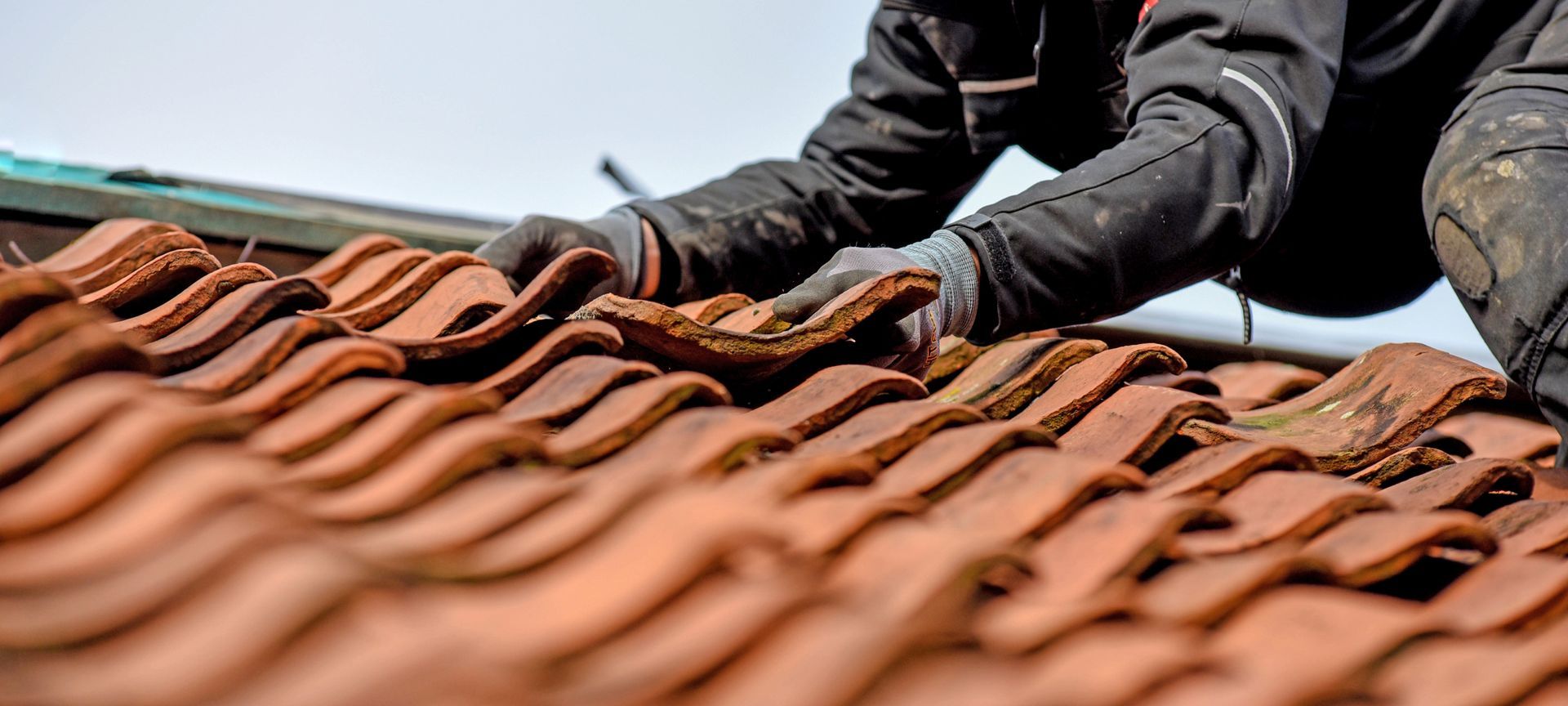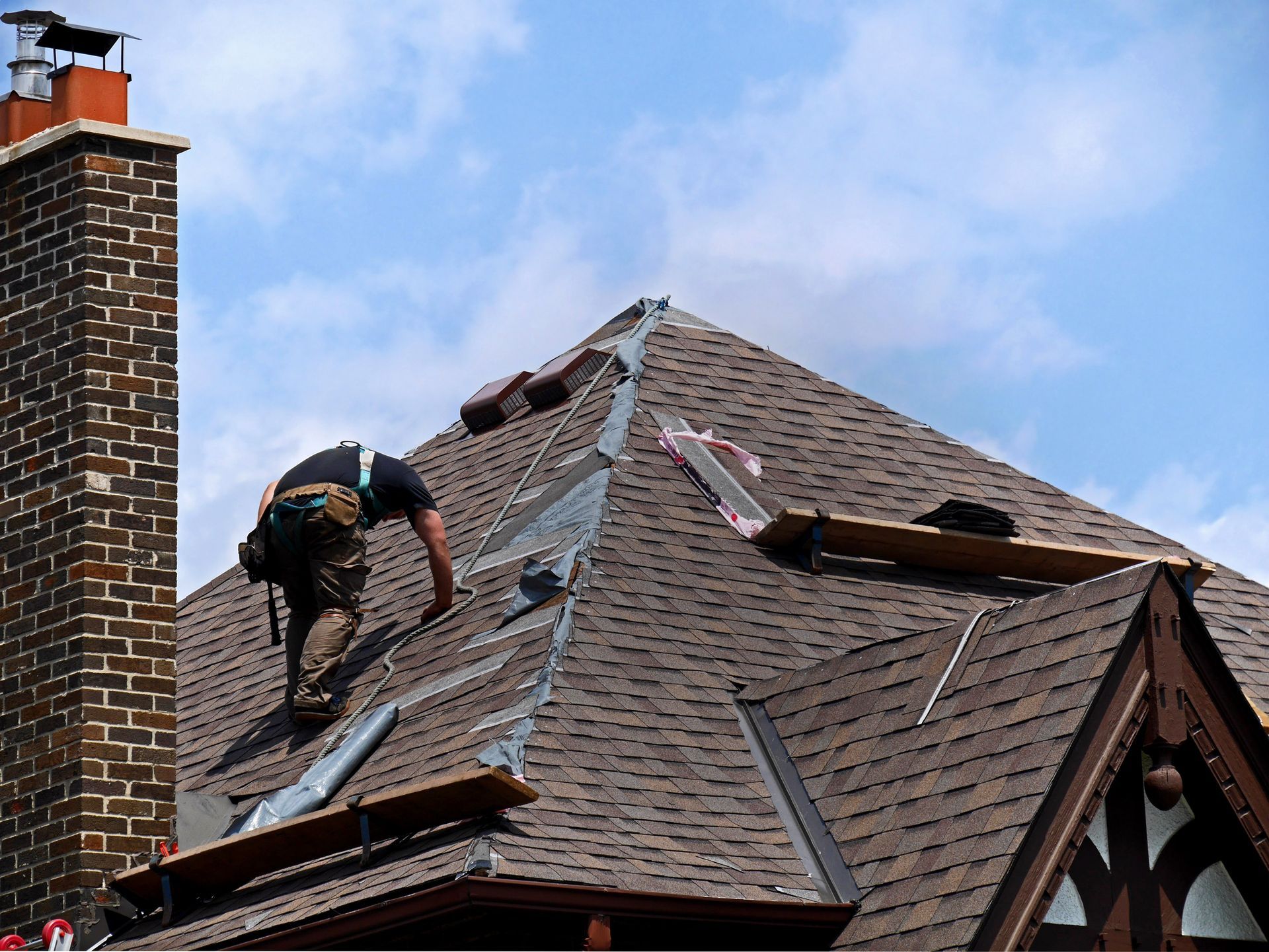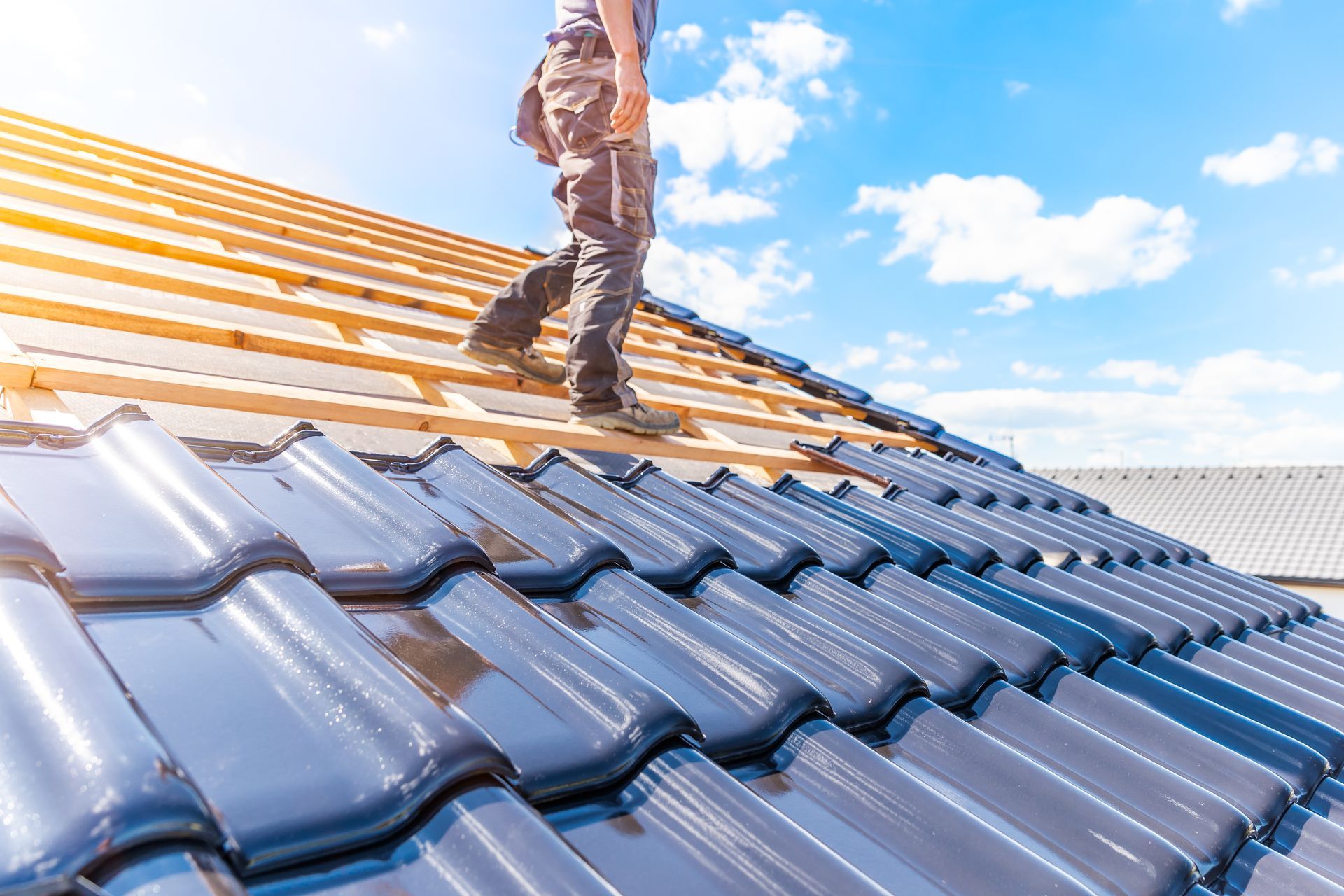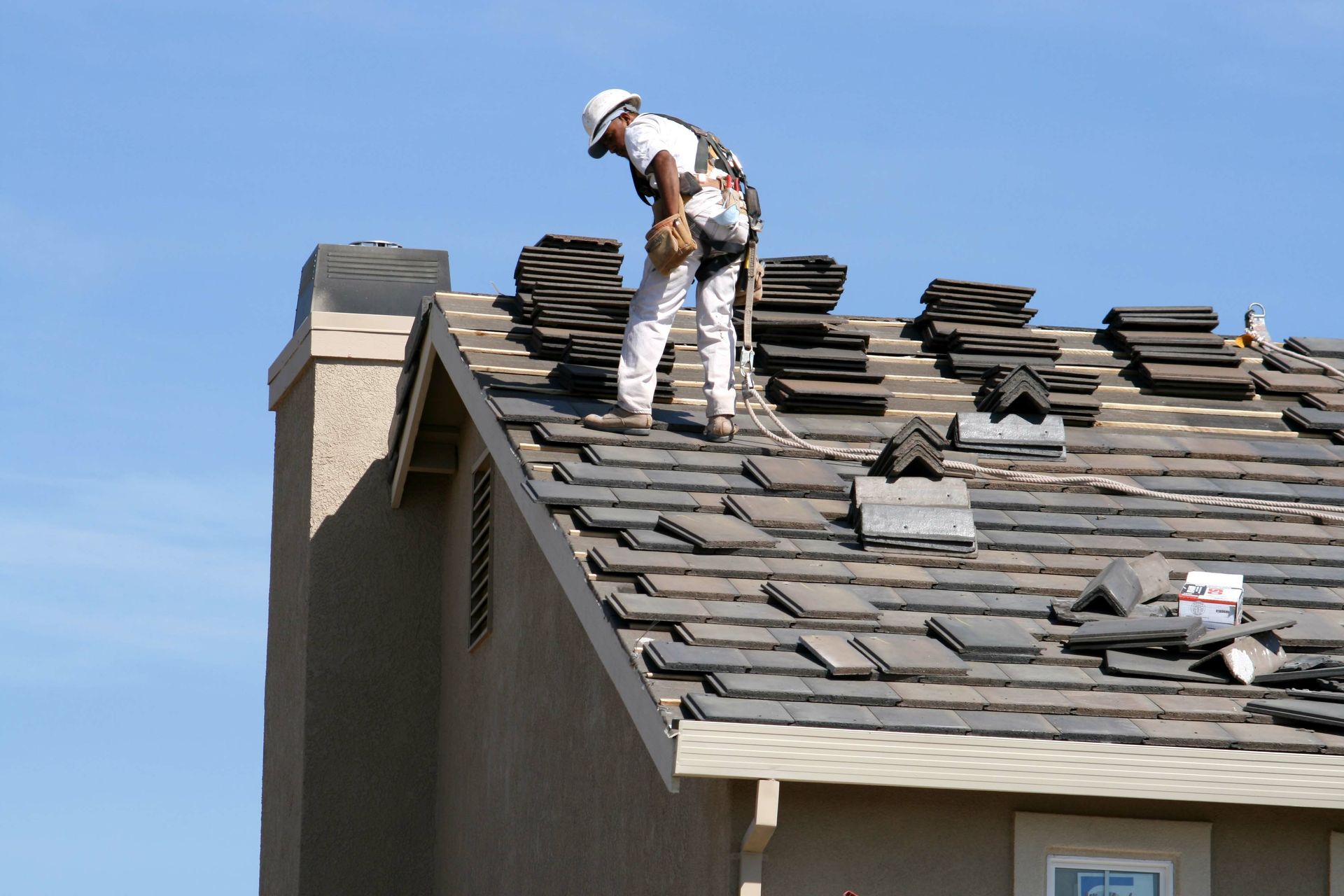Best Residential & Commercial Roofing Company North Wales
Professional roofing services built on expertise, compliance, and trust — protecting homes and businesses across North Wales.
When homeowners and businesses in North Wales search for the best roofing company, they need a provider that combines experience, compliance, and genuine craftsmanship.
Group Services North West (GSNW) stands out as a trusted name in the region, delivering high-quality residential and commercial roofing services that meet UK Building Regulations and exceed client expectations.
Operating across Wrexham, Llandudno, Rhyl, Bangor, Mold, and Anglesey, the company’s work reflects a blend of technical precision and long-term reliability. Every project — from tiled domestic roofs to large commercial refurbishments — is designed to protect properties from North Wales’s heavy rainfall, strong coastal winds, and variable temperatures.
The Roofing Landscape in North Wales — Key Facts
According to the Office for National Statistics (ONS) and the Met Office, the roofing and construction industry plays a significant role in the North Wales economy.
| Indicator | North Wales Data | Source |
|---|---|---|
| Annual average rainfall | 1,200-2,400 mm (varies by area) | Met Office Climate Averages 1991-2020 |
| Average annual wind speed (coastal) | 18-23 km/h | Met Office |
| Construction sector employment | 26,000+ workers (2024) | ONS Business Register and Employment Survey |
| Small construction firms (<10 employees) | 91% of sector | ONS, UK Business Counts |
| Roofing & building maintenance output growth | +7.8% (2023-2024) | ONS Construction Output Data |
These figures highlight both the demand for reliable roofing and the challenges of maintaining weather-resistant structures in a region exposed to strong Atlantic systems.
Our Roofing Services in North Wales
Residential Services
- Roof installation and full re-roofing
- Slate and tile repairs
- Chimney flashing and leadwork
- Flat roof systems (EPDM, GRP)
- Roof ventilation upgrades
- Emergency storm-damage repairs
Commercial & Industrial Services
- Over-cladding and strip-and-resheet
- Roof coating and waterproofing
- Asbestos roof removal and compliant disposal
- Rooflight installation for natural light efficiency
- Solar-ready roofing preparation
- Scheduled roof maintenance programmes
Residential Roofing Solutions — Protecting North Wales Homes
North Wales has a diverse housing stock, from Victorian terraces in Wrexham to modern coastal homes in Llandudno. Each requires a different approach to roofing.
Common Roofing Types for Homes
- Natural slate roofing – A traditional choice in Wales, renowned for its 100-year lifespan and resistance to high rainfall.
- Clay and concrete tiles – Cost-effective, versatile, and suited for steep or low-pitch roofs.
- Metal roofing (zinc, aluminium, steel) – Lightweight, energy-efficient, and ideal for modern eco-homes.
- Flat roofing (EPDM or GRP) – Perfect for extensions and garages, offering excellent waterproofing and longevity.
Weather-Proofing in the Welsh Climate
North Wales receives some of the highest rainfall totals in the UK. According to the Met Office, Capel Curig averages over 2,700 mm of rain per year. To address this, Group Services North West uses advanced underlay membranes, moisture barriers, and ventilation systems to prevent condensation and dampness.
Homeowner Benefits
- Improved insulation and energy efficiency
- Enhanced kerb appeal and property value
- Reduced heating bills due to modern materials
- Long-term warranties and maintenance options
Commercial Roofing Solutions — Built for Business Performance
For businesses across Wrexham Industrial Estate, Bangor, and Deeside, roofing reliability means operational continuity. Group Services North West delivers large-scale roofing systems designed to handle high usage, environmental exposure, and energy-efficiency demands.
| Roofing System | Ideal Application | Key Benefits |
|---|---|---|
| Single-Ply Membranes (TPO, PVC, EPDM) | Offices, warehouses, retail parks | Waterproof, UV-resistant, low-maintenance |
| Built-Up Roofing (BUR) | Flat or low-slope roofs | Multi-layer protection, thermal stability |
| Metal Roof Panels | Industrial or retail | Long lifespan (40+ years), recyclable |
| Liquid-Applied Systems | Complex shapes or refurbishments | Seamless waterproofing, fast installation |
| Green Roof Systems | Eco-buildings | Improved insulation, stormwater control |
GSNW also provides rooflight installations, over-cladding, and insulated panel systems that meet Part L (Energy Efficiency) of the UK Building Regulations.
By aligning with official guidance from GOV.UK Building Regulations, the company ensures that all materials and methods meet safety, insulation, and fire-resistance standards.
Compliance and Safety — Built to British Standards
Every project carried out by Group Services North West adheres to the following regulatory frameworks and standards:
| Regulation / Standard | Description | Source |
|---|---|---|
| Building Regulations (England & Wales) - Approved Document Part L | Sets requirements for energy conservation and insulation. | GOV.UK |
| Health and Safety at Work Act 1974 | Governs workplace safety during construction. | HSE.gov.uk |
| Control of Asbestos Regulations 2012 | Applies to safe removal and handling of asbestos roofing materials. | HSE.gov.uk |
| BS 5534:2014+A2:2018 | British Standard for slating and tiling. | British Standards Institution |
| Construction (Design and Management) Regulations 2015 (CDM) | Ensures safe planning and management of roofing projects. | GOV.UK |
By maintaining compliance across all projects, GSNW ensures not just longevity and quality — but legal peace of mind for homeowners, landlords, and businesses.
Economic Snapshot — Why Quality Roofing Matters in North Wales
Roofing and insulation play a measurable role in regional sustainability and energy efficiency. ONS data shows that domestic energy consumption per household in North Wales averages 17,000 kWh annually — higher than the England average due to climate conditions.
A simple insulation upgrade during re-roofing can reduce heating use by up to 25%, lowering carbon emissions and annual bills.
Why Homeowners and Businesses Choose Group Services North West
Key Differentiators
- Local expertise — years of experience in North Wales’s weather and architecture
- End-to-end service — survey, design, installation, and maintenance
- Fully insured and certified — peace of mind from start to finish
- Energy-efficient solutions — compliant with modern sustainability goals
- Transparent pricing — no hidden costs, written guarantees provided
Client Confidence
Customer satisfaction across residential and commercial sectors has led to consistent recommendations from clients in Wrexham, Bangor, and Llandudno.
GSNW’s reputation is built not just on quality roofs, but on trust, safety, and long-term performance.
Sustainability and Recycling
GSNW actively supports the Welsh Government’s Net Zero Wales Plan (2021–2025), which encourages responsible waste management and low-carbon construction practices.
All roofing materials are sourced from suppliers following
ISO 14001 Environmental Management Standards. Tile and metal offcuts are recycled, and all asbestos removal follows HSE-approved disposal routes.
Average Roofing Cost Overview:
| Project Type | Average Cost (2025) | Notes |
|---|---|---|
| Small roof repair | £500-£1,200 | Minor tile or flashing work |
| Full re-roof (residential) | £4,000-£8,000 | Using clay, concrete, or slate |
| Flat roof replacement | £1,200-£3,500 | EPDM or GRP systems |
| Commercial / industrial roof | £15,000-£40,000+ | Larger scale, specialist materials |
Request a Free Roofing Assessment
Whether you’re a homeowner in Wrexham, a landlord in Rhyl, or a business owner in Bangor, Group Services North West delivers reliable, regulation-compliant roofing tailored to your needs.
Book your free assessment today to receive:
- A full roof condition survey
- Recommendations aligned with Building Regulations
- A clear, fixed-price quotation
- Guidance on energy-efficiency improvements or available grants
Contact us today to arrange your free, no-obligation quotation and discover why property owners across North Wales trust Group Services North West for roofing services that stand the test of time.
FAQs About Roofing Services in North Wales
What factors affect the cost of a new roof in North Wales?
Roofing costs in North Wales depend on property size, materials, roof design, accessibility, and weather conditions. On average, residential re-roofing costs range from £4,000 to £8,000, while large commercial or industrial projects can exceed £25,000. Quotes from Group Services North West include materials, labour, and full compliance with UK regulations.
Roofing in North Wales is influenced by the region’s coastal exposure, steep pitches, and high rainfall. Every roofing project is different, so cost depends on several measurable factors:
Roof Size and Shape – Larger roofs require more materials and labour hours. Complex designs, dormers, and valleys increase cutting and fitting time.
Roofing Material – Traditional Welsh slate, one of the region’s signature materials, commands a premium due to longevity (up to 120 years). Clay and concrete tiles offer a cost-effective middle ground, while single-ply or metal roofs suit larger commercial buildings.
Roof Accessibility – Difficult access, narrow lanes, or scaffolding around chimneys and dormers can add logistical cost.
Structural Condition – If rafters or battens require repair or insulation upgrades (as required by Part L of the Building Regulations), this increases cost but ensures compliance and energy efficiency.
Weather and Season – Heavy rain or high winds can delay work, affecting scheduling.
Waste and Disposal – All old roofing materials must be removed safely; asbestos removal follows HSE’s Control of Asbestos Regulations 2012, which increases disposal costs but guarantees safety.
At Group Services North West, each estimate includes a full roof inspection, itemised material list, and confirmation that all work meets BS 5534 and CDM 2015 regulations. Investing in quality roofing not only protects against North Wales’s extreme weather but improves insulation and property value for decades.
What roofing materials are best for the North Wales climate?
The best roofing materials for North Wales are natural slate, clay tiles, metal roofing, and single-ply or GRP systems. These materials resist heavy rainfall, salt-laden coastal winds, and temperature fluctuations. Group Services North West recommends materials based on property type and local weather exposure.
The North Wales climate — shaped by Atlantic winds and consistent rainfall — demands durable, moisture-resistant roofing. Choosing the right material ensures long-term protection, minimal maintenance, and compliance with local building codes.
1. Natural Slate Roofing
Durability: Lifespan of 80–120 years.
Benefits: Natural water resistance, fireproof, visually appealing.
Ideal for: Period homes and traditional Welsh architecture.
Local Relevance: Welsh slate (Penrhyn and Cwt-y-Bugail quarries) remains iconic across the region.
2. Clay and Concrete Tiles
Durability: 50–70 years.
Benefits: Affordable and suited for both pitched and low-slope roofs.
Ideal for: Modern family homes and new builds in Wrexham, Mold, and Bangor.
Regulation Note: Must comply with BS EN 490 standards for concrete roofing tiles.
3. Metal Roofing (Zinc, Aluminium, Steel)
Durability: 40–60 years.
Benefits: Lightweight, recyclable, corrosion-resistant.
Ideal for: Commercial buildings, agricultural sites, and coastal homes in Rhyl or Llandudno.
Energy Benefit: Reflective surfaces can reduce solar heat absorption by up to 20%.
4. Flat Roofing — EPDM, TPO, or GRP
Durability: 25–40 years.
Benefits: Seamless waterproofing, flexibility in cold weather.
Ideal for: Extensions, garages, retail units.
Regulation: Installation must meet Approved Document Part L for insulation.
5. Green or Solar Roofs
Benefits: Improves insulation and biodiversity.
Ideal for: Sustainable housing developments and eco-builds.
Group Services North West advises homeowners to select materials with proven weather resistance, backed by manufacturer warranties and British Standards. Investing in the right roof material reduces repair frequency and helps properties withstand North Wales’s famously wet and windy conditions.
How can I make my roof more energy efficient?
To improve energy efficiency, property owners can upgrade insulation, ventilation, and reflective materials, or integrate solar systems. Energy-efficient roofs lower heating costs and carbon emissions. Group Services North West designs roofs that comply with Part L of Building Regulations, helping North Wales homes meet sustainability targets.
Energy-efficient roofing is central to the UK’s Net Zero 2050 target. In North Wales, where average household energy consumption exceeds the UK mean (ONS, 2024), optimising roof performance significantly reduces waste and bills.
1. Improve Insulation
Poor insulation allows up to 25% of household heat to escape through the roof. Adding high-performance materials like rigid PIR boards or spray foam insulation helps retain warmth during cold months. For flat roofs, a “warm roof” system places insulation above the structure, preventing condensation.
2. Upgrade Ventilation
Adequate airflow prevents moisture build-up and mould. Installing ridge vents, soffit vents, or roofline ventilation ensures temperature stability.
3. Use Reflective and Energy-Smart Materials
Metal roofs with reflective coatings, white single-ply membranes, or cool-roof coatings reduce solar absorption, maintaining cooler interiors during summer.
4. Integrate Solar Panels
Solar photovoltaic (PV) systems can be installed during re-roofing to cut electricity bills. North Wales receives around 3.5–4.0 kWh/m²/day of solar radiation annually (Met Office). Group Services North West ensures roofs are structurally solar-ready for future integration.
5. Maintain Roof Integrity
Regular inspections identify leaks or damaged underlay, both of which reduce energy efficiency. GSNW provides scheduled maintenance plans for both homes and businesses.
6. Check Regulatory Compliance
Under Part L of the Building Regulations, re-roofing involving over 25% of roof area must meet updated insulation and energy performance standards. Group Services North West guarantees all works meet or exceed these benchmarks.
Efficient roofing lowers carbon emissions and contributes to regional sustainability under the Welsh Government’s Net Zero Wales Plan (2021–2025).
What are the main roofing regulations and safety standards in Wales?
Roofing in Wales must comply with UK Building Regulations, British Standards (BS 5534), and HSE safety laws. Group Services North West ensures full adherence, covering design, insulation, ventilation, and asbestos handling.
All roofing work in Wales — whether domestic or commercial — is governed by several key regulations ensuring safety, structural integrity, and energy performance.
1. Building Regulations (England & Wales)
Approved Document A: Structural stability.
Approved Document C: Moisture control.
Approved Document L: Energy conservation (thermal insulation standards).
Approved Document F: Ventilation.
Roof replacements covering more than 25% of roof area must comply with current energy-efficiency standards.
2. British Standards (BS 5534)
Defines requirements for:
Fixing and nailing methods for slates and tiles.
Wind load testing for exposed regions (North Wales is classified as a “high wind zone”).
Underlay and batten specification to prevent water ingress.
3. Construction (Design and Management) Regulations 2015 (CDM)
Applicable to all roofing works involving multiple contractors or significant safety risks. Requires written plans, risk assessments, and competent supervision.
4. Control of Asbestos Regulations 2012
Mandates safe removal and disposal of asbestos-cement roofing, common in older industrial sites. Only licensed contractors such as Group Services North West may perform these works.
5. Health and Safety at Work Act 1974
Covers fall prevention, scaffold safety, and use of personal protective equipment (PPE).
6. Local Authority Requirements
Roofing work may require Building Control approval from councils such as Wrexham County Borough Council or Gwynedd Council, depending on the project’s scope.
Compliance is not just about safety — it affects property resale, insurance, and sustainability. Group Services North West provides completion certificates and documentation for every project, proving that all roofing systems meet the latest legal standards.
How often should roofs in North Wales be inspected or maintained?
Roof inspections should take place at least once a year, or twice yearly for older or flat roofs. After heavy storms or strong coastal winds, immediate checks are advised. Group Services North West offers routine maintenance plans to prevent costly repairs.
North Wales’s coastal and mountainous climate places heavy stress on roofing systems. Regular inspections help detect small issues — such as slipped tiles or loose flashing — before they lead to major damage.
1. Annual Inspections
Most homes benefit from one thorough inspection each year, ideally before winter. This ensures that tiles, gutters, and underlays are in good condition before the wettest season.
2. Biannual Checks for Older Roofs
If your roof is over 20 years old or uses materials like felt or cement tiles, schedule inspections every six months.
3. After Severe Weather
Storms can lift ridge tiles or damage flashing. Coastal towns such as Rhyl and Holyhead experience gusts over 70 mph several times per year (Met Office data). Quick post-storm checks reduce long-term costs.
4. Commercial & Industrial Roofs
Businesses should adopt planned maintenance every 6–12 months, particularly for flat roofing systems where water pooling is common.
5. What Maintenance Includes
Clearing gutters and downpipes
Re-securing loose tiles
Checking flashings and rooflights
Removing moss or algae growth
Inspecting for leaks or condensation
Group Services North West provides photographic inspection reports, allowing property owners to track roof condition over time.
Preventive maintenance extends roof lifespan, reduces insurance claims, and keeps properties compliant with safety regulations.
Are there special roofing regulations for high-wind areas such as Snowdonia?
Yes. Roofing work in Snowdonia and other exposed parts of North Wales must comply with specific British Standards and Building Regulations for high-wind zones. The most important is BS 5534:2014+A2:2018, which sets out detailed fixing, underlay, and material requirements for roofs exposed to strong winds. Group Services North West follows all such standards to ensure every installation in Snowdonia, Anglesey, and coastal regions is structurally sound, wind-resistant, and legally compliant.
Snowdonia is one of the most weather-exposed areas in the United Kingdom. Its mountainous terrain and proximity to the Irish Sea create powerful Atlantic winds and heavy rainfall, often exceeding 28 metres per second (63 mph) in gusts at roof level. Because of this, all roofing in Snowdonia and nearby coastal areas must follow stricter design and installation rules than in sheltered regions.
1. British Standard BS 5534:2014+A2:2018
This is the principal code of practice for slating and tiling in the UK. It explicitly classifies locations such as Snowdonia as “very high exposure zones” and outlines the mechanical performance requirements for roofing materials and fixings.
Under BS 5534:
All slates and tiles in high-wind areas must be mechanically fixed using nails, screws, or clips — mortar alone is not sufficient.
Ridge and hip tiles must also use mechanical ridge fixing systems, ensuring they stay secure under suction pressure.
Underlays (roof membranes) must be wind-uplift tested and meet Category C or D standards for very high exposure.
Battens must meet defined strength and grading standards; using undersized or ungraded timber in Snowdonia would breach compliance.
Each roof design must undergo wind uplift calculation to determine the correct fixing density and pattern.
These rules apply to both new roofs and re-roofing projects and are legally enforceable through Building Control.
2. Building Regulations – Approved Document A (Structure)
Part A of the Building Regulations (England and Wales) requires that roofs “shall be capable of safely sustaining and transmitting the dead, imposed, and wind loads to the ground without causing deflection or instability.”
In Snowdonia, this means the structural elements — rafters, trusses, fixings, and sheathing — must be designed to resist local wind loads and snow loads calculated using BS EN 1991-1-4:2005+A1:2010 (Eurocode 1).
The design process uses regional data to establish a design wind pressure, factoring in altitude, terrain, and topography. For example:
At low altitude (Bangor, 10 m elevation): Design wind speed ≈ 24 m/s
At high altitude (Capel Curig, 300 m elevation): Design wind speed ≈ 28–30 m/s
This difference significantly affects tile fixings, batten spacing, and roof truss design.
3. Health and Safety & Construction Regulations
High-wind roofing work also falls under the Construction (Design and Management) Regulations 2015 (CDM 2015), which require formal risk assessments and safe working practices. Contractors must demonstrate that scaffolding, ladders, and materials can withstand gusts during installation.
The Health and Safety Executive (HSE) publication HSG33: Health and Safety in Roof Work also gives practical advice for windy sites — including guidance on anchoring scaffolds, preventing sheet uplift, and suspending work when gusts exceed 23 m/s (50 mph).
4. Building Control Oversight
Local authorities such as Gwynedd Council and Conwy County Borough Council enforce these standards through Building Control. Before approval, they may request evidence of compliance — such as a wind uplift fixing report or BS 5534 compliance certificate. Contractors who fail to meet these standards risk enforcement notices or refusal of certification.
5. How Group Services North West Ensures Compliance
Group Services North West carries out site-specific wind assessments for all roofing projects in Snowdonia and other exposed parts of North Wales. The company:
Uses BS 5534–approved mechanical fixings and reinforced underlays.
Conducts wind load calculations based on elevation and exposure.
Provides compliance documentation for Building Control approval.
Trains all staff in CDM and HSE working-at-height safety for high-wind zones.
This ensures every roof remains stable, watertight, and fully compliant, even under the harshest Snowdonia weather.
Roofing regulations in Snowdonia are stricter than in lowland Wales. Roofs must comply with BS 5534, Approved Document A, and Eurocode 1 for wind resistance.
By following these standards, Group Services North West guarantees roofs that are safe, compliant, and built to endure the extreme wind and weather conditions unique to the region.





